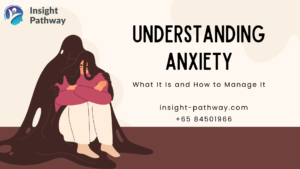Millions of people around the world suffer from depression, but it is still stigmatized, which frequently inhibits candid communication and understanding. Isolation, misinterpretation, and a lack of access to essential resources can result from this widespread stigma. We will investigate the causes of this stigma, look at its significant effects on individuals impacted, and identify practical measures we can do to create a more understanding and encouraging atmosphere. We can build a society where people feel empowered to ask for assistance, open up about their experiences, and eventually find a mental health therapist and healing by removing barriers and promoting open dialogue. Come along with us to explore the way to eradicate the stigma associated with depression and create a more welcoming future for everybody.
We must all work together to promote empathy and understanding in order to eradicate the stigma associated with depression. It starts with candid discussions that dispel myths and emphasize the realities of dealing with this mental illness. We can humanize depression by sharing our own experiences and stories to professional counselor and showing that it is a complicated illness that affects millions of people rather than just a sign of weakness.
One of the most important factors in eliminating stigma is education. Giving people accurate information about depression’s signs, causes, and available treatments like professional counseling can demystify the illness and empower those who are experiencing it to get treatment without worrying about being judged. Initiatives for community support can also establish secure environments where people can connect with like-minded people and share their emotions.
Furthermore, representation is important when it comes to how mental health is portrayed in the media. Stereotypes are broken down when characters with depression are sympathetically and realistically portrayed in literature, television, and movies. These stories build empathy for people who suffer from depression while letting viewers understand the difficulties of living with it.
It is crucial to establish safe spaces where people can talk about their experiences without worrying about being judged. For people who are struggling with depression, support groups whether they are held in person or virtually can be a priceless resource because they give empathy and validation from others who have had similar difficulties. These settings mental health services support the idea that no one is struggling alone and promote candor regarding emotions and experiences.
Adopting policies that give mental health support top priority can have a big impact on both educational institutions and companies. Encouraging staff members or students to take mental health days when necessary sends a strong message: putting one’s health first is crucial for general happiness and productivity.
Conclusion
Not only is eliminating the stigma associated with depression a commendable objective, but it is also essential for the welfare of both individuals and communities. We can destroy damaging preconceptions and establish a culture of acceptance and understanding by encouraging psychotherapy and counselling in Singapore, candid discussions, educating ourselves and others, and helping those who are struggling. It is critical to acknowledge that depression is a real illness that merits the same consideration and care as any physical illness.




